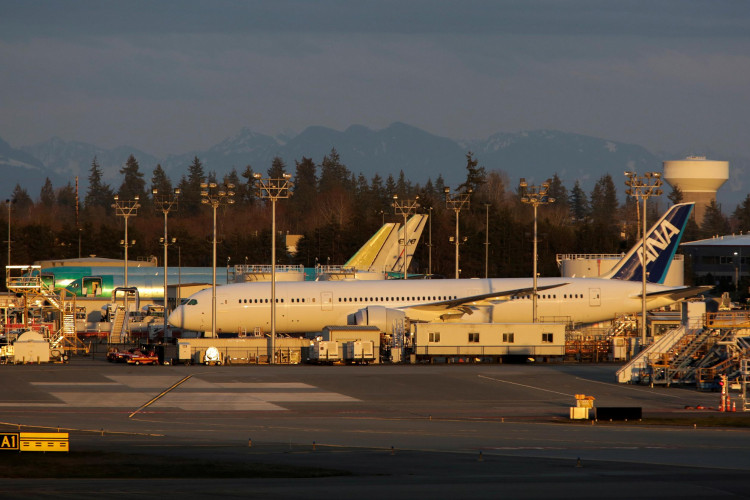On Monday, Boeing announced it is shutting down production at its Seattle area factories for two weeks as the company struggles with falling demand and the pandemic fallout.
As a result, the work stoppage will render thousands of aerospace employees without any means of income. In Washington State at least 110 people have died from coronavirus, mostly in the Seattle site.
This crucial decision "supports our workers and the communities they operate and live in," Boeing chief executive officer Dave Calhoun said in a media release. Calhoun pointed out that the company must keep its staff, clients and supply chain "at the top of our minds while we continue to analyze the changing situation."
The decision by the company to halt its production at its facilities in the area of Puget Sound comes as the state of Washington, where much of Boeing's production is based, descends into calamity.
Boeing employs approximately 70,000 workers in the region. The organization said the virus infected 32 of its staff, including 25 in the greater area of the city. Calhoun stressed that operations would be reduced starting Wednesday.
In an email to Barron's media site, Boeing added that personnel who can't work remotely will get a paid leave equivalent to 10 working days. Analysts said the compensation for furloughed employees is good news but the halt is bad news for the hundreds of companies that make up the supply chain for Boeing. But stopping shouldn't come to investors as a surprise.
For example, the virus has struck the state of Washington fairly hard with some 1,500 cases of Covid-19 confirmed in Everett. And last week, similar measures were taken by US car makers, including General Motors and Ford Motor to contain the aggressive spread of the disease.
The coronavirus has particularly hit the aviation industry as airlines scramble to land hundreds of aircraft and postpone flights as the rising decline in passenger traffic globally hurts the business.
General Electric announced earlier that it would lay off 10 per cent of U.S. staff in its critical jet engine unit - equivalent to around 2,600 staff - and furlough engine repair and overhaul employees for 90 days due to the decline in demand.
Goldman Sachs analyst Noah Poponak believes Boeing has ample liquidity to push through a lean 2020, and the industry's long-term outlook remains strong. The company thinks flight travel will become as common as ever as soon as the pandemic has been resolved, he disclosed in a statement.





